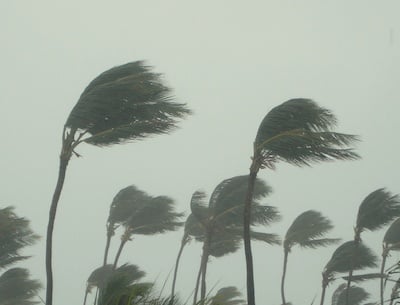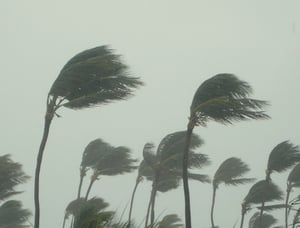Explore Springs Apartments

 May 7 to 13 is Hurricane Preparedness Week, aptly timed to help you get ready for hurricane season from June 1 to November 30. This is the perfect time to brush up on your knowledge, gather your supplies and come up with an emergency plan so you’re ready to face anything the coming months might bring.
May 7 to 13 is Hurricane Preparedness Week, aptly timed to help you get ready for hurricane season from June 1 to November 30. This is the perfect time to brush up on your knowledge, gather your supplies and come up with an emergency plan so you’re ready to face anything the coming months might bring.
1. Understand Your Risk
Hurricanes are intense storms that generate tropical cyclones with winds of 74 mph or more. Rip currents, inland flooding and tornadoes can all accompany a hurricane. As residents are well aware, the Covington and Slidell areas are both historically prone to hurricane activity. Isaac skirted the area in 2012, Lee passed through in 2011, and Bonnie and Five both hit around New Orleans in 2010. Most notably, of course, is Katrina in August 2005. You can see the exact tracks of hurricanes in your area with NOAA’s Historical Hurricane Tracks tool.
2. Create an Emergency Plan
Develop your emergency plan now, before you’re under the imminent threat of a severe storm. Document your valuables, organize your important documents in a waterproof storage box and make sure your renter’s insurance is up-to-date. Locate the nearest evacuation route and decide where you would head if you were evacuated from your apartment home.
Can you make informal arrangements with friends or family outside the hurricane area in case of an emergency? If you’re planning to head to a hotel, make sure everyone in your family is aware of the plan so you can find one another if you’re not evacuating together. You can download and print your own emergency communication plan from the Department of Homeland Security.
3. Gather Emergency Supplies
Don’t wait until you’re battling bare shelves and long lines to get your emergency supplies. Assemble a disaster kit now. This should include:
For additional details on what you should include in your emergency supplies, check out this disaster supplies list.
Find a safe space in the back of a closet or cabinet to stash your supplies, and keep them together so they’re easy to gather in an emergency. Update your supplies annually. If you’re still relying on food and water stores from last year, you should check expiration dates and replace these items as needed.
Spread the word and make sure your friends, family and neighbors are taking advantage of Hurricane Preparedness Week this May. Have any other hurricane preparedness tips? Share your tips with the Springs at Fremaux Town Center and Springs at River Chase communities.
Take Comfort In Being Home
262-502-5500
We Your Pets
Privacy Policy | Cookie Policy | Terms of Use | Accessibility Statement
Owned and managed by Continental Properties, an award-winning corporate leader and developer of apartment communities nationwide. Copyright © 2026 Springs Apartments